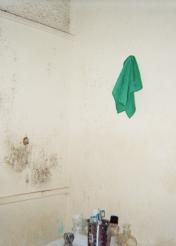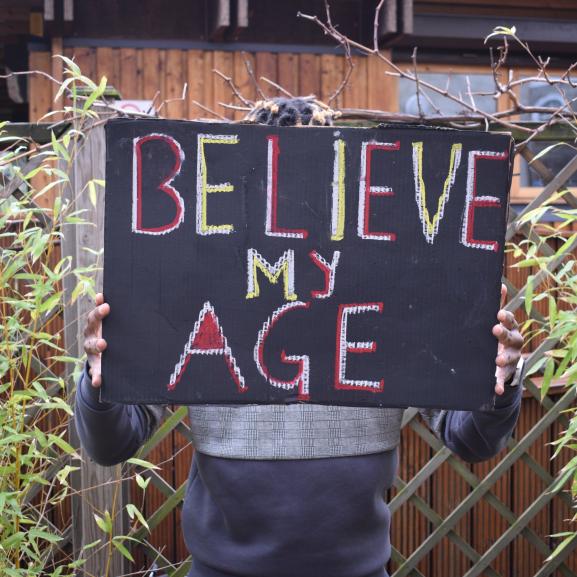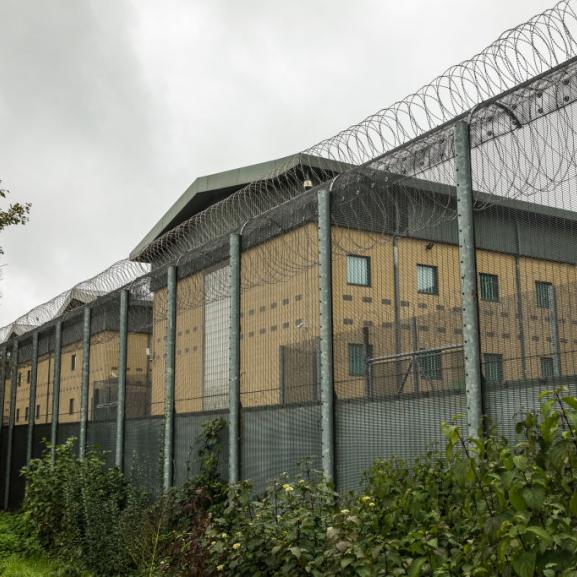The 'Poverty Barrier' report
'The Poverty Barrier' is a ground-breaking report which provides the most comprehensive study to date of experiences of poverty among survivors of torture during and after their passage through the UK's asylum system.
The report draws on the testimony of over 100 survivors of torture and the expertise of 18 different members of Freedom from Torture's clinical department.
It reveals how the day-to-day struggles of living without the means to meet basic living needs reinforce the powerlessness, fear and isolation that are the torture survivor's inheritance from their past, acting as a clear barrier to a their long-term recovery.
Keith Best, former Freedom from Torture CEO, said:
"The report's shocking findings recall the formidable challenges our clients face. This is a wake-up call that we must do more to help those individuals who have sacrificed and risked so much in escaping torture in their home country, and have ended up being some of the most vulnerable, the most needy and the most desperate in the UK."
The purpose of this report is to show how simple changes to the asylum and mainstream welfare benefits systems could dramatically improve the capacity of torture survivors to realise their right to rehabilitation, as guaranteed under international law.
The right to rehabilitation for survivors of torture in international law
The right to rehabilitation for survivors of torture in international law
Article 14 of the United Nations Convention Against Torture and other Cruel, Inhuman or Degrading Treatment or Punishment:
1. Each State Party shall ensure in its legal system that the victim of an act of torture obtains redress and has an enforceable right to fair and adequate compensation, including the means for as full rehabilitation as possible. In the event of the death of the victim as a result of an act of torture, his dependents shall be entitled to compensation.
2. Nothing in this article shall affect any right of the victim or other persons to compensation which may exist under national law.
Key findings
Protection
- Poor quality decision-making on asylum claims - including the mishandling of torture disclosures - means survivors are required to lodge appeals and fresh claims, acting as an important root cause of destitution; and
- The ability of torture survivors to engage effectively with the asylum system is undermined by poverty which exacerbates poor mental health related to torture and makes it difficult for survivors to report to the Home Office and maintain contact with legal representatives.
Financial Support
- The level of financial support provided to survivors in the asylum system is inadequate to meet essential living needs, including those in relation to food, clothing and health and hygiene; and
- Poor administration in the asylum system causes delays and gaps in support, leaving many survivors at risk of destitution.
Accommodation
- The lack of secure accommodation, the poor quality of some of the accommodation provided, and the denial of accommodation to torture survivors - resulting in dependency and destitution - deprive torture survivors of the 'safe recovery environment' needed to effectively engage in torture rehabilitation.
Transition for those granted permission to live in the UK
- Poverty - including difficulties securing basic income and adequate housing, accessing support from the mainstream welfare benefits system, and finding a job for those well enough to work - often continues for those who have been granted protection, which makes this an unexpectedly difficult period psychologically for many survivors of torture.
Rehabilitation
- Poverty and insecurity in the UK reinforces symptoms of depression and post-traumatic stress disorder experienced by many survivors as a result of torture - this makes it especially difficult for them to cope with poverty;
- Lack of funds (even if these would be reimbursed) to travel to appointments and to maintain contact with Freedom from Torture clinicians and other healthcare providers is a common problem; and
- The ability of torture survivors to engage effectively in therapy is also impeded by chronic diet inadequacies leading to poor cognitive functioning, and chronic dependence, disempowerment and a lack of agency which exacerbate psychological health symptoms associated with torture and reaffirm the sense of worthlessness and humiliation that survivors experience as a result of their torture.
Recommendations
Some of the key recommendations made by Freedom from Torture in this report include:
The Government should:
- raise asylum support rates to provide for a standard of living equivalent to mainstream welfare support provision. If utilities are provided as part of the provision of accommodation, the asylum support rate should be equivalent to at least 70 per cent of income support rates. This rate should then be increased in line with annual cost of living increments for mainstream support; and
- implement the recommendation of the Joint Committee on Human Rights for 'a coherent unified, simplified and accessible system of support for asylum seekers, from arrival until voluntary departure or compulsory removal from the UK' such that Section 4 support is abolished and Section 95 support is transformed into an 'end to end' cash-based support system.
The Home Office should:
- rollout new guidance on handling asylum claims involving allegations of torture or serious harm with facilitated training for all asylum decision-makers to improve the quality of decision-making, save the cost and distress for applicants of unnecessary appeals and fresh claims, and prevent destitution;
- ensure decisions concerning the provision of accommodation to torture survivors comply with Section 4 of the Asylum Seekers (Reception Conditions) Regulations 2005. In particular, those receiving or accepted for treatment at one of Freedom from Torture's centres should be accommodated close by to that centre. Torture survivors, including those who have experienced rape, should not be forced to share bedrooms with strangers and self-contained accommodation should be provided wherever this is clinically necessary; and
- ensure that asylum support is not withdrawn until the Department for Work and Pensions and HM Revenue and Customs are ready to commence mainstream welfare provision via an identified bank account.
The Department for Work and Pensions should:
- create a strategic lead tasked with developing an action plan to ensure the mainstream benefits system is more responsive to the needs of refugees including torture survivors; and
- implement the recommendations of the Public Accounts Committee aimed at improving Employment and Support Allowance decision-making and the Work Capability Assessment process, and in particular the recommendation 'to review the operation of the work capability assessment for vulnerable groups'.
The Ministry of Justice and Legal Aid Agency should:
- abandon plans to introduce a residence test for legal aid and ensure there is no curtailment otherwise of the current legal aid eligibility for asylum seekers and refugees seeking judicial review of decisions related to asylum support, provision of immigration status papers and access to mainstream welfare entitlements.
Survivor experiences
To mark the release of Freedom from Torture's 'Poverty Barrier' report we gave clients disposable cameras and asked if they would be interested in giving us their own visual representations of poverty in the UK.
More than 30 survivors participated in the project and they came from a range of backgrounds - from different countries and religions; from the young to the old; from across the country, London to Glasgow.
Everyone who took part was eager to use their camera to raise public awareness of the devastating impact poverty is having on survivors of torture. Documenting their day-to-day reality - from sleeping under bridges to struggling to stay warm, these pictures highlight many of the issues detailed in our research.














